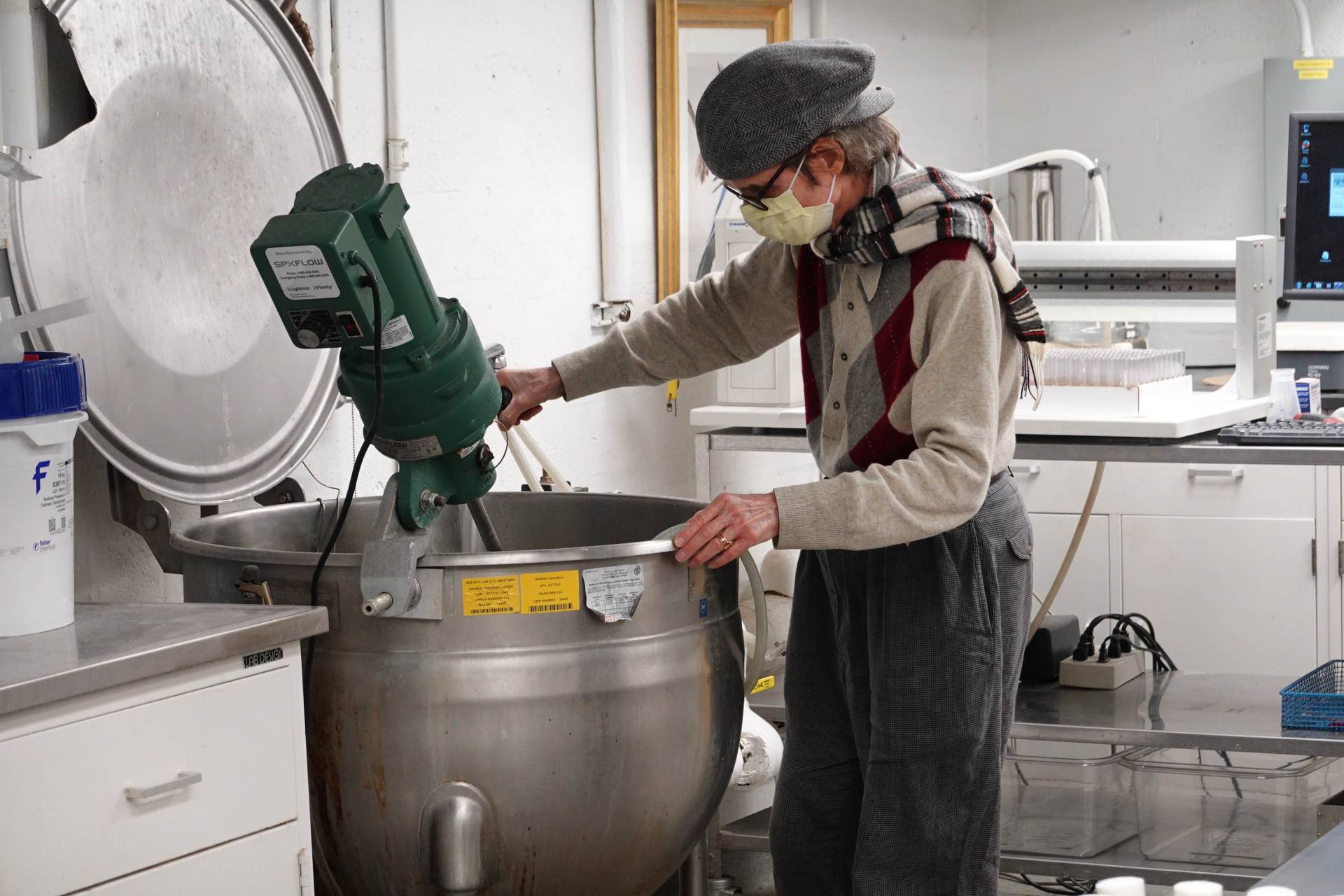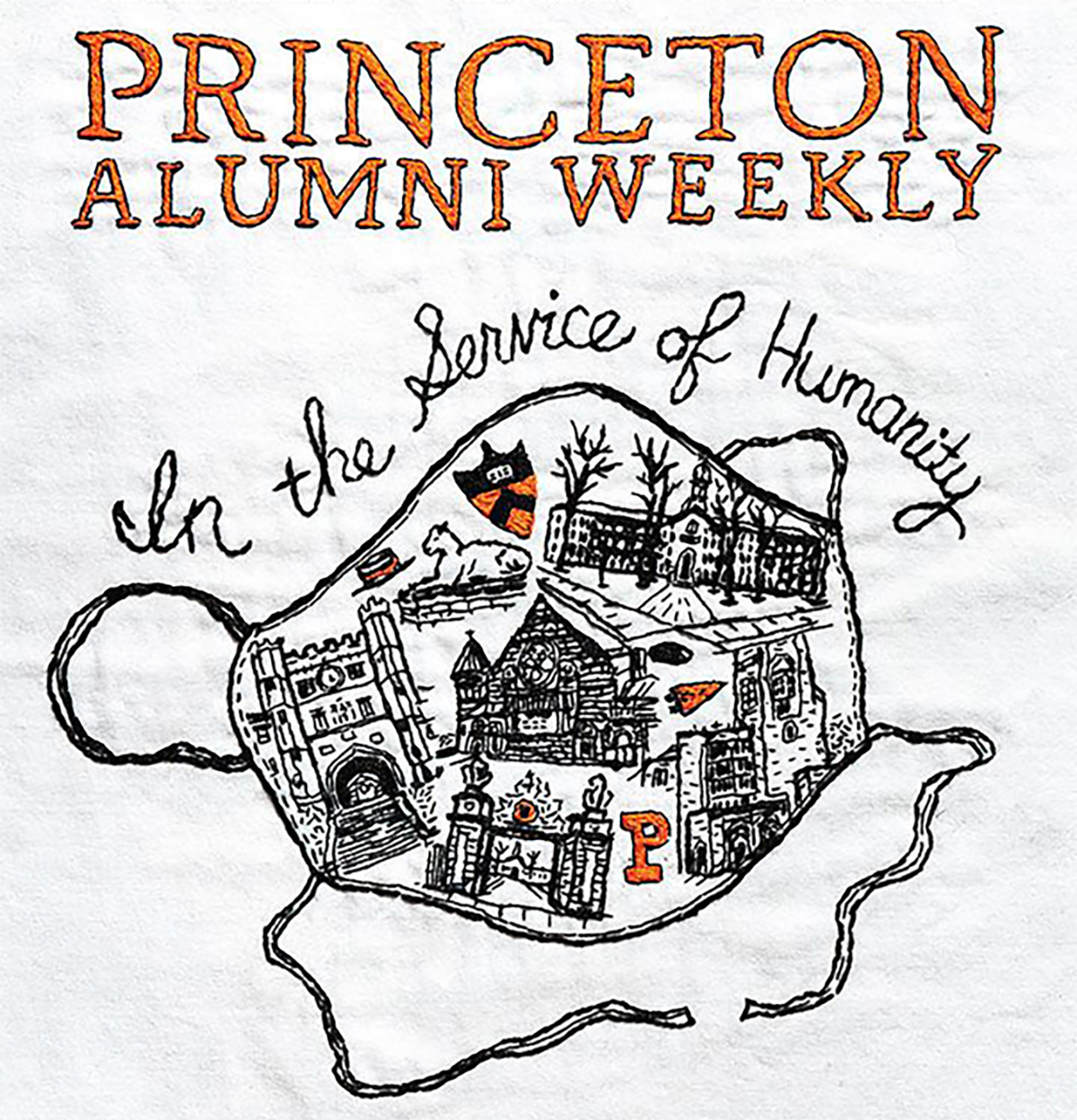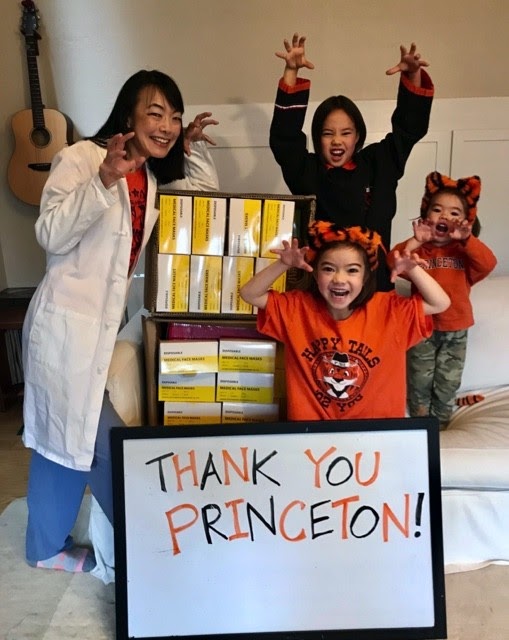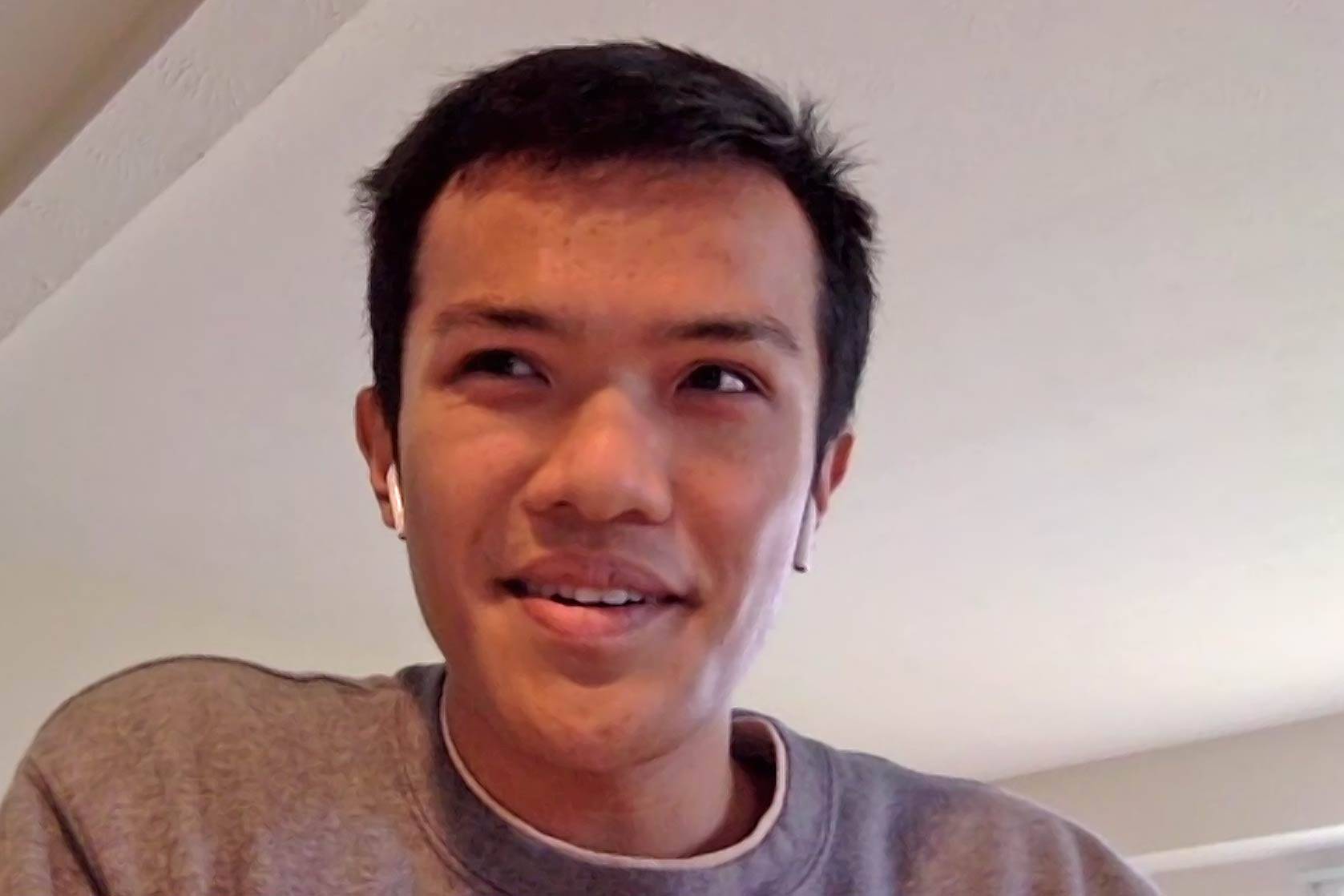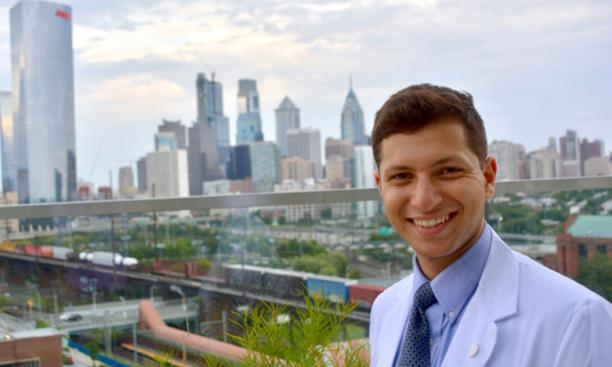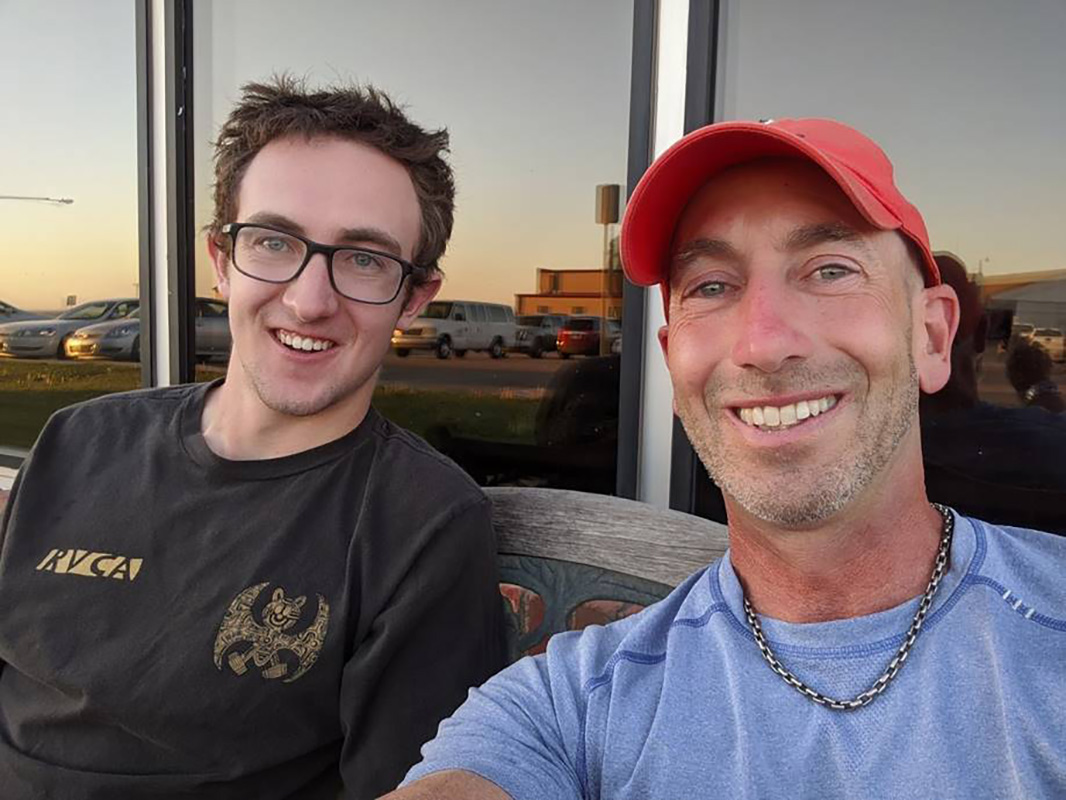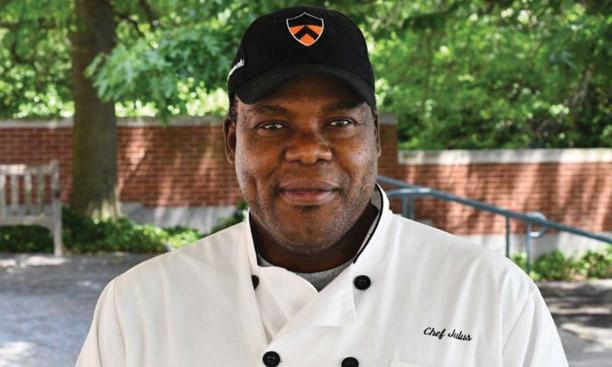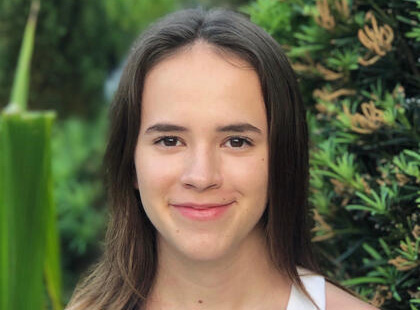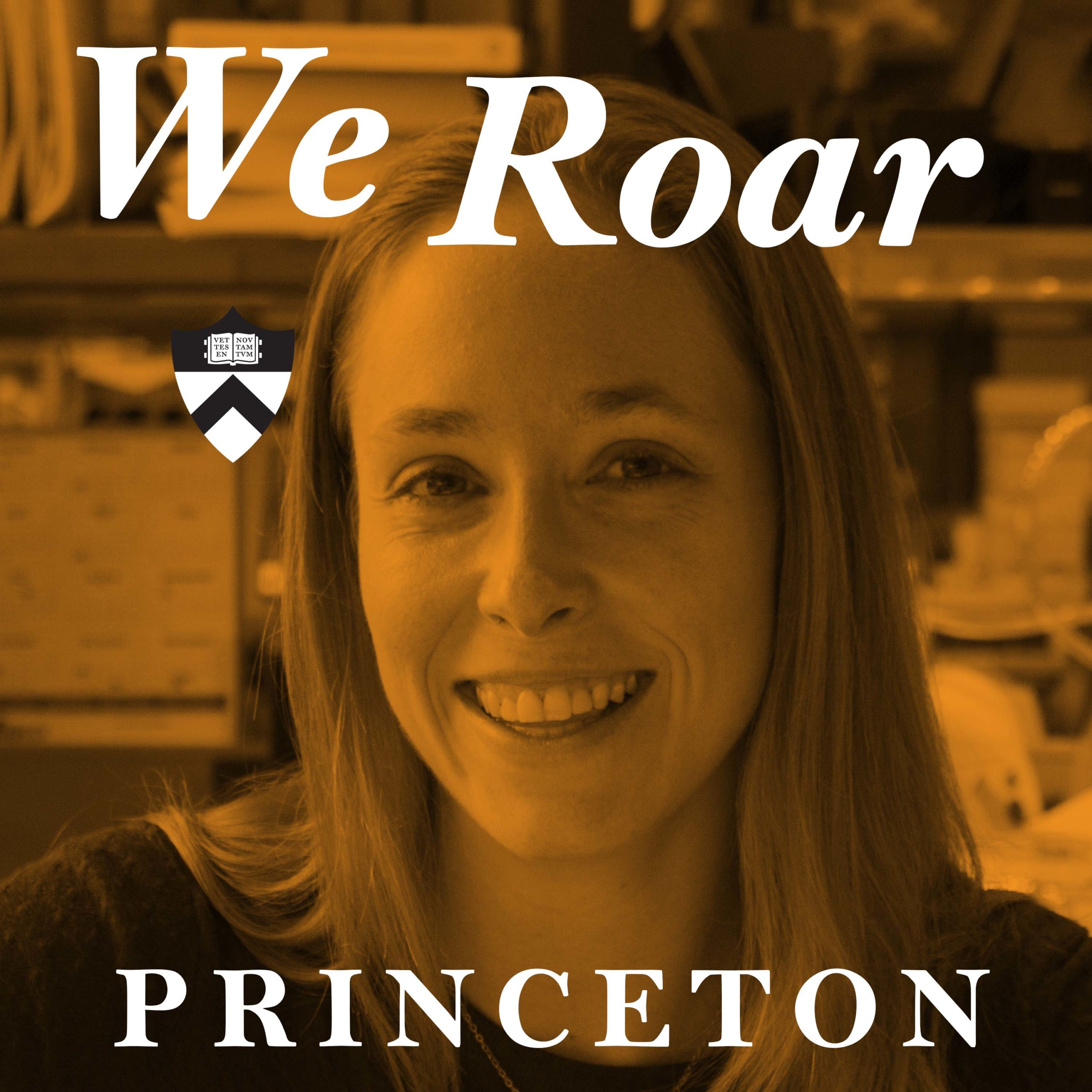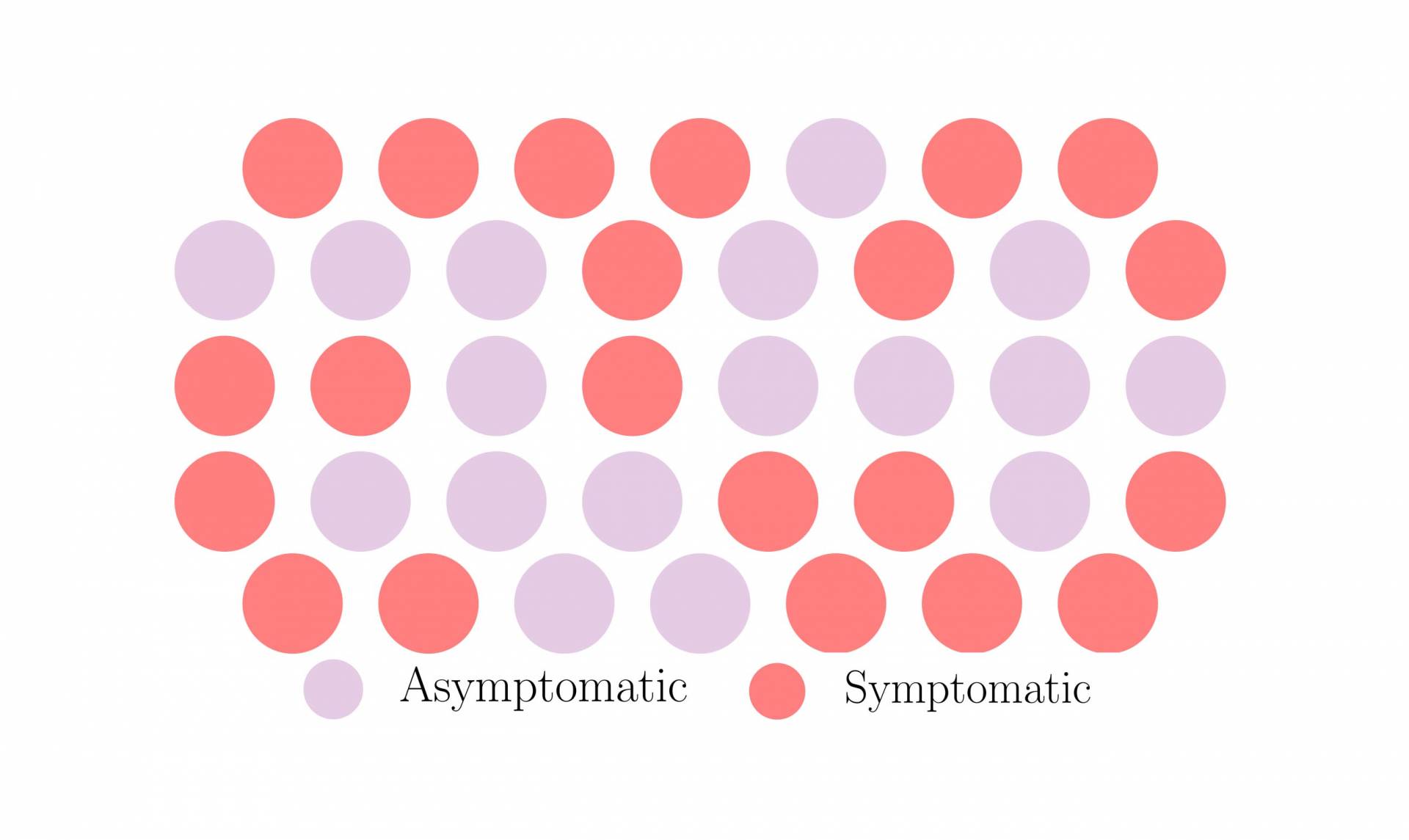-
May 14, 2020 Research
Essential work: Princeton’s fly food chef provides sustenance for life-sciences research
Millions of tiny creatures — and the scientific discoveries that they make possible — depend on one of the essential workers reporting to campus during the pandemic. Gordon Gray is “chef de cuisine” at Princeton’s fly kitchen, where he brews a rich and hearty concoction for the roughly 2 million fruit flies that call Princeton laboratories home.
-
May 14, 2020 Arts/Cultural, Community,
Diana Weymar ’91 Stitches Memorable PAW Cover
Textile artist and curator Diana Buri Weymar ’91 introduces the PAW’s feature on how alumni artists are coping with the pandemic, but captures a poignancy in the interplay of Princeton connections and the sense of where we are in the world today.
(Reunion by Diana Buri Weymar ’91; photograph by Nelson Hancock ’90) -
May 14, 2020 Health Care, Service
Covid Supply Team streamlines the delivery of in-demand PPE
Quarantined in Hong Kong for two weeks, Brian Sheng ’18 leveraged his experience with China-U.S. relations and devised a plan to help bring PPE from China to American health care facilities, partnering with Rel Lavizzo Mourey ’02, and Eric Sheng, Brian’s brother and a Penn alumnus. “I think it is times like these, in times of crisis, that the strength of the Princeton network really shows,” Sheng said.
-
May 13, 2020 Education
Go ahead, ask a chemistry grad
Bored with staying at home and eager to talk shop, 12 chemists offer half-hour info and Q&A sessions to high schoolers on what it’s like to be a chemistry grad student. Chem-STEM has worked with five local high schools so far.
-
May 13, 2020 Health Care
Doctors in Training: In Limbo, Alumni Med Students Find Ways To Serve
Increasing numbers of doctors in training, Princeton alumni among them, are finding ways to help fight the global pandemic without violating social-distancing protocols. Their efforts include participating in online research designed to improve COVID-19 treatments, coordinating volunteer efforts on social media, and educating the online public about everything from the biology of viruses to the importance of handwashing.
-
May 13, 2020 Health Care, News, Service
Todd Green ’90 Delivers N95 Masks On the Fly
When California attorney Todd Green ’90 volunteered to help transport personal protective equipment (PPE) to the Navajo Nation, little did he know that the effort would take him halfway across the country. But when the email request came, Green and his son, Asher, prepped to leave for Chicago the next day in their “small but mighty” Mooney Ovation two-seater for what became a meaningful trip.
-
May 13, 2020 Education
Essential Workers Keep Princeton Running During COVID-19
Despite the eerie quiet that now envelops Princeton’s campus, about 750 staff, faculty, and graduate students continue to report for work. Many who fall into this category are unionized hourly workers — including employees working in dining, building, and mail services — and navigating the new normal during the coronavirus pandemic has required new ways of doing business.
-
May 12, 2020 Community, Health Care, Service
Carla Dias ’21 answers call of service: “There is no better time to reengage with our communities”
Carla Dias ‘21 takes “In the Service of Humanity” to heart. During the fall semester, she spent her Thursdays volunteering at a hospice facility, feeling the acute difference between that environment and the typical undergraduate experience. When she found herself back home in March thanks to the pandemic, she took a similar tack, looking for ways to help in her community.
-
May 12, 2020 Health Care, Podcasts, Research
Warning the Public: Coronaviruses are Deadlier in Larger Amounts
Catching COVID-19 isn’t all-or-nothing, says immunologist Caroline Bartman: like poison, a high dose of virus can kill while a low ‘viral load’ may cause mild infections.
-
May 12, 2020 Research
COVID-19′s silent spread: Princeton researchers explore how symptomless transmission helps pathogens thrive
COVID-19′s rapid spread throughout the world has been fueled in part by the virus’ ability to be transmitted by people who are not showing symptoms of infection. Now, a study by researchers at Princeton has found that this silent phase of transmission can be a successful evolutionary strategy for pathogens such as viruses like the one that causes COVID-19.
#tigershelping
Share your efforts, large and small, using #TigersHelping, and by following @princetonalumni on Facebook, Twitter and Instagram. Or you can send stories to tigershelping@princeton.edu.


